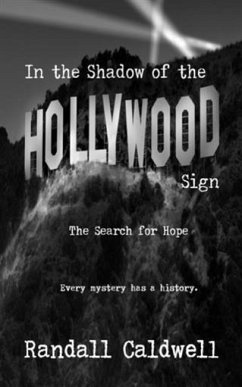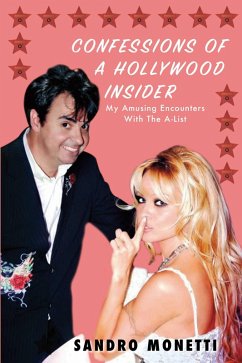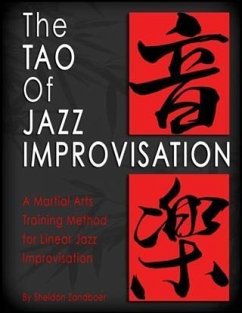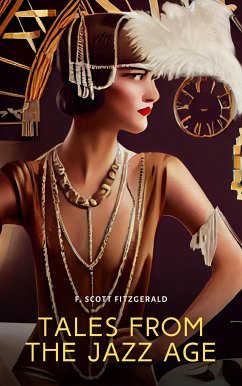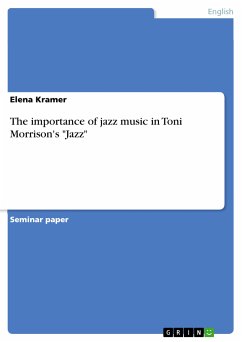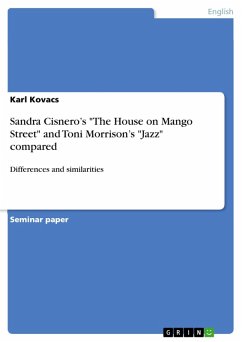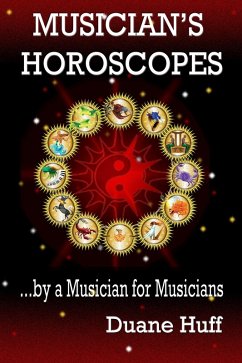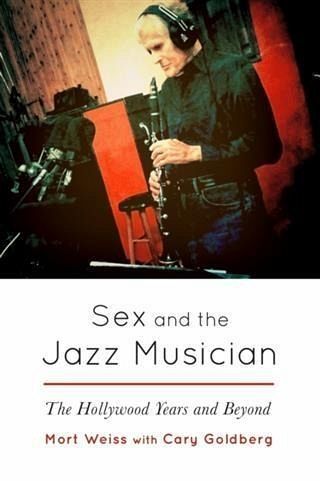
Sex and the Jazz Musician - The Hollywood Years and Beyond (eBook, ePUB)

PAYBACK Punkte
6 °P sammeln!
Sex and the Jazz Musician - The Hollywood Years and Beyond is an intriguing glimpse into the life and times of "the world's greatest unemployed jazz clarinetist," the 80-year old Mort Weiss. Inspired by Mort's column on the popular website All About Jazz, The Mort Report, Sex and the Jazz Musician features 22 candid, poignant and ribald articles (of the 23 that are featured on the site), which are interspersed with brief pieces that provide context for Weiss' unique and creative narratives. Those tales take readers back in time to Mort's initial exposure to jazz, through his encounters with th...
Sex and the Jazz Musician - The Hollywood Years and Beyond is an intriguing glimpse into the life and times of "the world's greatest unemployed jazz clarinetist," the 80-year old Mort Weiss. Inspired by Mort's column on the popular website All About Jazz, The Mort Report, Sex and the Jazz Musician features 22 candid, poignant and ribald articles (of the 23 that are featured on the site), which are interspersed with brief pieces that provide context for Weiss' unique and creative narratives. Those tales take readers back in time to Mort's initial exposure to jazz, through his encounters with the famous (Elvis Presley, Steve Allen, Jimi Hendrix) and the infamous, detailing the highs and lows of his more than 60 years in and around the music business. As of December 2015, his collected pieces on All About Jazz have been viewed nearly 204,000 times. Born in 1935 in Pennsylvania, Weiss began clarinet lessons when he was nine-years old. After moving with his family to Los Angeles, he continued playing classical music, and during his teens studied with the L.A. Philharmonic Orchestra's esteemed clarinetist, Antonio Remondi. After graduation and a year at the Westlake School of Music, the precocious teenage Weiss soloed on several T.V. programs with the Freddie Martin Orchestra, a.k.a. "The Band of Tomorrow." Weiss' exposure to jazz began with Dixieland. But, when he first heard a Charlie Parker record, he was hooked. He frequented jazz clubs, participating in after-hours jam sessions, and spending many hours in the woodshed honing his craft. Bebop clarinetist Buddy DeFranco became his idol. At the age of 19, Weiss was drafted into the Armed Services and played tenor sax in the Army band. In the ten years following his discharge, there was a dearth of work for jazz clarinetists and the tenor saxophone became his bread and butter. Weiss' life became lounges, minor jazz clubs, and work in R&B bands. Enter the 1960s. Travelling in the proverbial fast lane became a rapid trip down the wrong speedway. Weiss eventually found himself in jail, buck naked, his life in "total shambles," playing the "wrong" instrument to support a dead-end life style. In that moment of clarity, Weiss decided to "put everything down, including playing music." His love affair with his horn, that harshest of mistresses, was put on hiatus. Still, unable to disassociate himself from music completely, Weiss began working at a music store, and eventually opened his own store, The Sheet Music Shoppe which grew into the largest purveyor of printed music in Southern California. In the summer of 2001, Weiss read an advertising flyer that asked "Do You Want to Play Jazz?" The timing was perfect. It was enough to make him dust off his clarinet case, begin practicing, and soon invite guitarist Ron Eschete to jam. Their collaboration led to a recording session that became the 2-CD set No Place to Hide, the release that launched Weiss'SMS Jazz label in 2002. In the ensuing years, he has released an additional eleven recordings, working with such popular jazz artists as Joey DeFrancesco, Sam Most, Bill Cunliffe and the Don Friedman Trio.
Dieser Download kann aus rechtlichen Gründen nur mit Rechnungsadresse in A, B, BG, CY, CZ, D, DK, EW, E, FIN, F, GR, HR, H, IRL, I, LT, L, LR, M, NL, PL, P, R, S, SLO, SK ausgeliefert werden.




